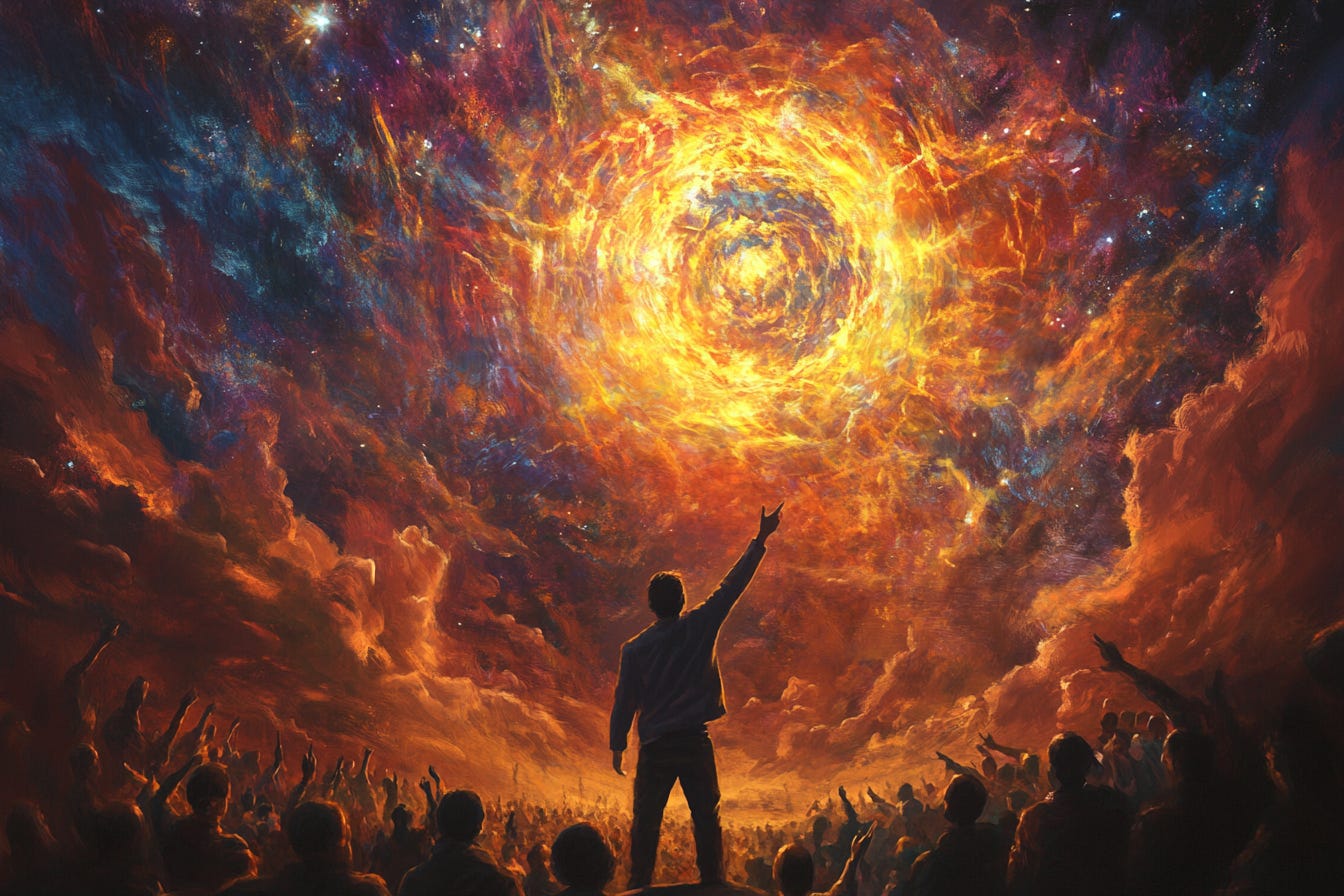The question of Mankind's purpose in the Cosmos has been the central point of discussion for philosophical and theological debate since their inceptions. Our search for meaning has led us into a variety of psychological heavens and hells. It has birthed every novel Human society and culture. The meanings we craft for ourselves define how one ought to act; what is righteousness and what is sin. So much of what we've created ends up feeling artificial, however. That is to say that it is ultimately revealed in our minds that what we've placed our faith in is not grounded in eternal principles but is, rather, infected with our own unconscious desires for comfort or personal aesthetic appeal. The inevitable realization that what we've grounded ourselves upon is an unstable, shifting sea of sand, leads many to existential despair and confusion. Some find it so unbearable that they nihilistically suppress their search for meaning, sometimes forever.
This despair and confusion is a consequence of a search for something that is fundamentally in conflict with what Human Beings are. I posit that there is no inherent purpose for which Human Beings are born, and that this must necessarily be the case in order for free will to exist. However, this does in no way mean that life cannot be lived with purpose, only that life does not begin with purpose pre-set and unchangeable. Purpose is freely chosen, and freely changed throughout our lives.
Enter the Metapurpose
The Metapurpose is my replacement for a pre-set, unchangeable purpose. It is a purpose which comes with free will but transcends mere purpose. Simply, the Metapurpose of all free-will agents is to define purpose for themselves. The Metapurpose places the individual in the driver seat of his or her own life. He or she does not simply decide what to do, but also why they do. This is purpose as a creative act. It is future-oriented in that it is often plotting and goal-driven, as all acts of creation are. However, it is also playful and fundamentally unserious about anything but the defense of its own freedom, because it is only that freedom which can be said to be fundamental and eternal about itself.
I argue that denial of the Metapurpose is the greatest and most common disease to ever afflict Humanity. Of course it is. To deny the Metapurpose is to walk through life unconscious of our own myth-making capacity, and it, without exception, leads people to mass-adoption of the myths of others. Ideologies and theologies are accepted on faith and believed to be the end-all be-all of existence. Denial of the Metapurpose yields to radical Perennialism every single time.
Another way to phrase the Metapurpose could be that Humanity's purpose is the continual defining and redefining of purpose, itself. Insofar as purpose and subjective interpretation serve to structure reality, as it must in a fundamentally psychic Cosmos, our purpose is to creatively forge a Cosmos within which Human creative flourishing is maximized as a counterbalance to entropy. As I've discussed in "The Winter-Summer Dichotomy in the Modern Right" (written in the midst of my own confused transition out of Perennialism and consequently unpublished (although a revisiting may be due)), life appears to be the cosmic counterbalance to entropy, unconsciously as evolution, and now I'll posit consciously as creativity sourced necessarily from free-will agents, and even metaconsciously from planned, future-oriented, self-evolution as a creative act and creativity within the context of, finally, an understanding of the Metapurpose.
I see in many a follower of Perennialism a search for some fundamental truth to structure their reality. They mean well, but have been led down self-destructive paths that deny the Metapurpose by positing a divine and perfect order which necessitates the creation of stagnant, change-resistant Human societies like those of Catholic Europe in the Dark Ages, the Hindu caste system, and the Islamic Caliphate, among others.
Perennialists; the fundamental truths you seek are thus: The Cosmos is psyche prior to its physicality. Free-will agents are a natural consequence of this fact. The Cosmos exists in the chaotic spectrum between opposite extremes, as it must for there to be free will in the first place. To embrace this is to accept individuation, "internal" creativity through self-authorship and myth-making, and "external" creativity through engagement with the physical world as sacred laws.
the METAPURPOSE.

